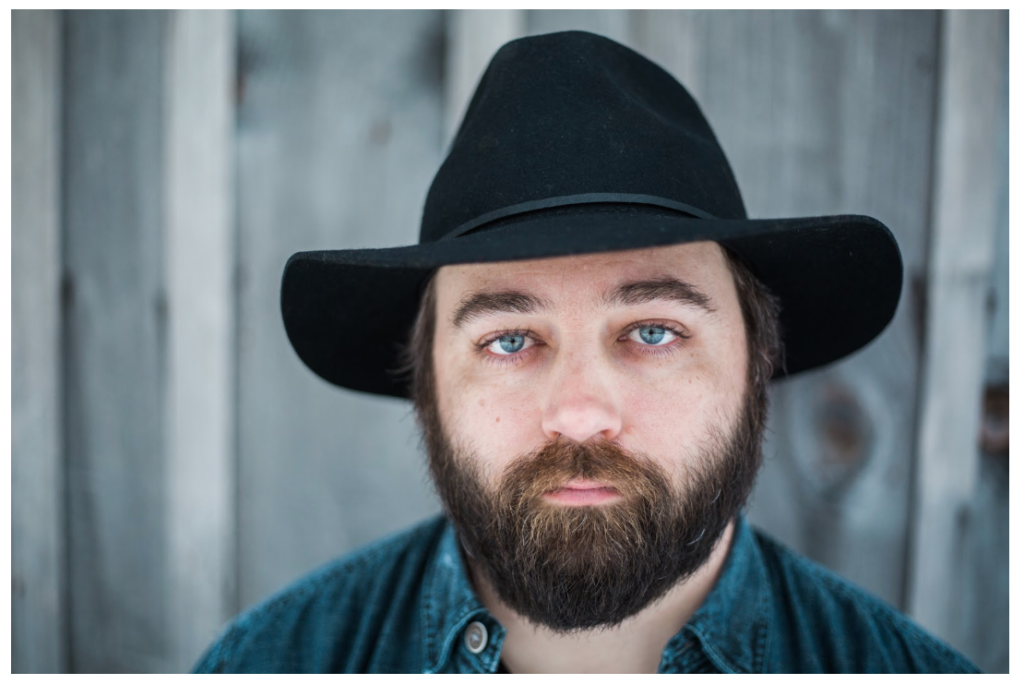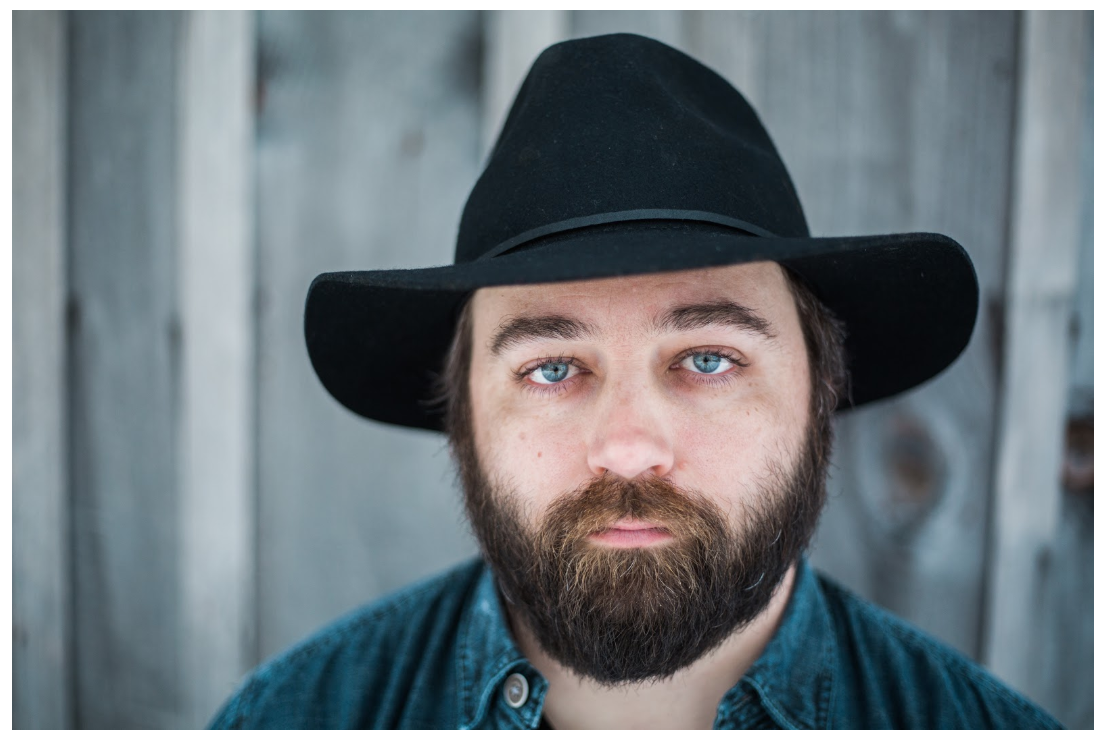An Interview with Zak Trojano: Young in Mind
I first got to listen to Zak Trojano a few years ago, when he opened for Jeffrey Foucault in Somerville and was immediately taken with his intricate fingerpicking and his smart and understated songwriting. His new album, Wolf Trees, is quite simply incredible. It demonstrates a range of styles–from gritty blues to delicate confession–and the songs echo back to each other about the choices we make and those choices that seem to be made for us. It’s a deep album, but it’s also sly and funny, and while the songs do seem to take stock, they’re not regretful. We had the chance to talk with Zak about Wolf Trees, the unique recording approach for the album, and the vagaries of how social media impacts our view of the world, and, more importantly, ourselves.

RLR: You played everything on this album–can you compare that experience to “Yesterday’s Sun,” and, “Two Lines,” recording with a band? And can you talk about why you went in that direction?
ZT: It’s intense to be the only person in the studio doing any playing. It was just myself, David Goodrich producing, and Justin Pizzoferrato doing the engineering. So I was just on duty constantly.
The way we set it up was really cool: Goody had a great vision for the way the session was going to run. I had the Martin guitar and the Weissenborn guitar, which is the slide, and we had them mic’d up and then piped into two different amps and then one going into the board with some effects.
So the idea was that I could just go in there and play, and improvise, and then we could fade up and down the different textures that are generated from the live performance. So I didn’t have to worry about much, I could just go in there and sort of be very free with everything.
We actually have a whole other album of just improvised stuff, because I would go in there to start the day, prior to tracking, to warm up and improvise, and they would just hit record. And then at some point, I’d go into whatever song I felt like doing. So it was a really free recording experience. I loved it. Sometimes when you’re in the studio, things can get a little stifled, and it just didn’t have any of that, because I didn’t feel any pressure to get in right, and I was just playing.
As to why we did that, I’ve been moving more towards this idea of being a solo performer, after being a drummer and being in bands, and I really wanted to see what I could do just on my own, performance-wise. So, I wanted to write something that was a piece; the album is really written in order as a piece and I wanted to be able to do that live, so I could just get up there and perform.
The guitar is tuned down to this C-modal open tuning, which is the same key the Weissenborn is in, so I really have the freedom to play the songs and improvise in the live setting. I’m touring with two different amps that I can turn up and down with the volume pedal, so I can get those textures live that we got in the studio.
RLR: You’re describing what sounds like a very unique experience in the studio. Most people I talk to feel like their studio time is crunched, that the time is ticking, etc.
ZT: I’ve worked with Goody a lot, and Justin too, but I did a bunch of records with Goody before I started the singer/songwriter thing; like I played drums on a Smither record. We have a really good working relationship and we’re also just buddies.
He’s really good about the flow of things and one of his things is: always book an extra day. However long you think it’s going to take, try to find the money to book an extra day, so you don’t have that crunch feeling.
And also just the fact that we didn’t have people running around; it was just Goody and Justin in there, laughing and having fun. There was just no feeling of pressure. The bonus, once we started going was Goody suggesting that we take a half an hour or so at the top of every session so I could warm up and we’d record it.
RLR: How do you feel like that warm up, improvisation time impacted what we hear on the record?
ZT: Well, it gave me time to get literally warmed up, which doesn’t always happen in the studio. When I was improvising, I was drawing on the themes from the album, playing instrumentally and I got to explore different ways of playing the songs. So it really dialed in the guitar parts and the feel. And it was refreshing, because I’d improvise and then stop and say, “Well, that was bullshit,” and everybody’d laugh and we’d start another thing. So it was really pleasant.
ZT: I have my little studio here at home where I feel comfortable. That’s sort of where the nuts and bolts happens, the grunt work. The little kernels of ideas, I often record on my phone at random times or places. Sometimes we’ll be out at the bar hanging out, and I’ll have to go into the bathroom to sing into my phone so I don’t lose it. Little kernels or inspiration usually come when I’m out in the world somewhere, or when I’m distracted, doing something else. And then I need a real quiet, kind of safe space to develop it, because if there’s distractions when I’m trying to craft it or figure out how the melody goes, I just can’t do it.
RLR: There is a line in the chorus of “99 Ways,” “What you really want and what you really need ain’t the same thing,” that sentiment seems to come up in different ways across the album – this dissonance between what we anticipate and how things shake out. Can you talk about these songs in conversation with each other?
ZT: You’ve already hit on a couple of the themes, but one thing is that I’m getting more comfortable with my voice in general, and where I’m from. I was doing an interview the other day and somebody brought up Bill Morrissey, a famous New Englander [as a comparison]. And I’d never thought of being a New Hampshire guy, or a New Englander, but that is where I was born and raised. So I’m getting more comfortable writing about trees and things I experienced growing up, rather than putting some reference that sounds more worldly but is actually full of shit because I don’t know anything about it. So it’s a personal record in that way.
One thing I was really thinking about a lot at the time was the current state of social media and everybody constantly trying to tell everyone what they’re doing all the time, rather than just doing it. I feel really lucky to have grown up right at the edge of that. I got to see that change, so I have a reference point prior to all of that. And there’s nothing really that awful about it, it’s just that I think it was better before. And maybe that’s just a product of aging, but I have to do so much of that for this job, which I never anticipated and I really dislike, but it’s kind of a requirement. So there’s this thread of getting away from that, versus everybody being a little bit famous.
ZT: Everybody has their own relationship with that. And I’m doing it more now than I ever have. Initially, it was like: “Here’s all the platforms,” and I was like, “I make music, how do I tweet about that?” I had this meeting with a marketing person and she said that you really have to be posting on all the platforms at least once a day, both to stay relevant and because the algorithms will screw you unless you’re in the feed all the time. I try to do that, but honestly, I look through the feeds of other people I know and they’re all just trying like hell to find something to put there everyday. Like: “Here’s a flower I saw.”
The personal experience of doing that and what it does to your mind psychologically is a whole other world, but what I think is really lost is the mysteries go out the window. Even if you’re not a Phish fan, which I never was, but it was the coolest thing in the world in high school to get these mixtapes that were floating around with this band on them, and you didn’t know what they look like, or who they were, but you were just like, “Wow, I gotta find out more about this.” And that little bit of legwork you had to put in made it mean more.
I’d rather have the mystery. I always think of Robert Plant: imagine if he’d had nine social media platforms in 1970–how much less cool and mysterious would he have been? “Oh look, Robert Plant’s eating Cheerios today.” But it also has this weird inflated character to it where it looks like everybody’s kicking ass in life, and really everybody’s just as messed up as you are.
RLR: The juxtaposition of “Wolf Trees” and “Young Surrender” is really cool to me—it feels like one is an invitation to find something true, the other underscoring that you often have to swim against the current to find it.
ZT: If you don’t do that in your life, you’re missing out. Or maybe that’s not right; everybody toes the line a little bit, and goes their own way as much as they can. But I think, especially with that tune, just having that feeling of letting go of whatever you thought you were supposed to do or what what you thought something was going to be…I mean, when you talk about this stuff, it sounds trite, like “Yeah, you just gotta be with what is, man,” so it’s a hard thing to talk about.
Catch Zak at Club Passim or at The Parlor Room this fall. But whatever you do, get your hands on Wolf Trees. It’s a gem of an album.

